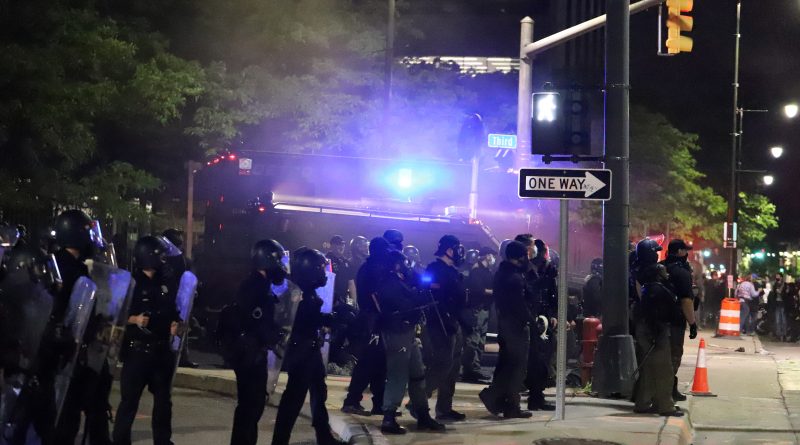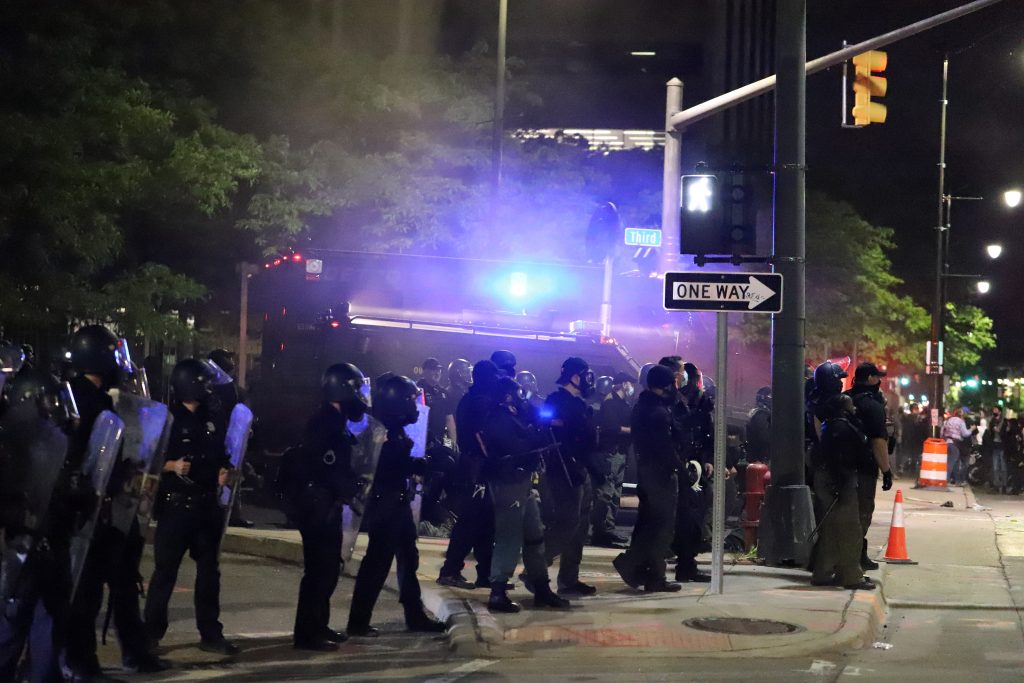Taxpayers Spend Hundreds of Millions Per Year On Police Brutality Settlements. That Money Could Be Better Spent.
FiveThirtyEight came out with a new article yesterday on the staggering cost of police brutality court settlements in American cities. But the article isn’t talking about human lives lost. It’s talking specifically about money that taxpayers spend to settle police brutality lawsuits, and the data gaps involved with assessing this information accurately (it’s FiveThirtyEight). The article, authored by Amelia Thomson-DeVeaux, Laura Bronner and Damini Sharma, looks at a few issues.
Overview: The High Cost of Malfeasance
The most salient one is the fact that US police departments pay out hundreds of millions of dollars per year in settlements over brutality and civil rights violations. New York City is the Secretariat of the competition, with $170 million paid out per year, or $1,704 million in ten years. What’s worse than this is that it also leads the pack per capita. New York is at $20.44 per capita per year in settlements, while Washington, D.C. trails slightly at $18.08 and Chicago at $17.36. Surprisingly, Detroit is a mere $8.61 per capita per year. (Of course, that number would be skewed by a few more pennies if they included the cost of the litigation the city is currently waging against civil rights protesters).
But this is an incomplete set of data, the authors say. There are some outliers, like a big settlement in Springfield, Massachusetts, that skewed that city’s per capita annual total to $13.04 per year. And from there, the analysis becomes ever more muddled. The authors go on:
It’s entirely possible, first of all, that we’re just missing data. In many cases, the cities told us they weren’t keeping records in a form that would allow them — or anyone else — to easily analyze how much money was going out the door for police misconduct. A handful of places responded to our public records request with a sheaf of court documents and told us to figure out the totals on our own. Others sent easier-to-analyze data with the caveat that some relevant incidents might still be excluded — and then refused to elaborate on how, or why, the data was incomplete.
Police departments are notoriously cagey with data and records access. But what’s interesting about the structure of policing is that it necessarily involves the collection of a ton of information by beat officers. Being out on these mean streets, officers, record a lot of information on a daily basis. If they’re working the same area day after day, they ideally begin to notice patterns. For the most part, they’re great at recording information.
Lots Of Data, If You Know How To Use It
They’re just really bad at doing anything with it, for the most part. To paraphrase a great joke from Twitter: “If you abolish the police, who’s gonna come to your house four hours later, take a bunch of notes on paper, and never follow up?” This was my experience with the Detroit police from having dealt with one personal break-in (in Corktown) and having managed nonprofit housing development on the West Side when we suffered a string of disastrous break-ins. You become a statistic fairly quickly.
Wait. Don’t they employ data people? Usually– and usually they’re beholden to the same draconian standards that “police can do no wrong.”
There’s a related issue that there is no national standard for how to categorize these data, nor how to categorize police misconduct in a single category. In contrast to many European countries where state police have a lot more investigative and enforcement power, virtually all policing in the United States is done at the local level. While localization of systems is usually good for being able to respond more quickly to local needs, it becomes a big problem when you’re trying to compare apples to apples.
Wait. Aren’t we just perhaps a bit too litigious? As a society?
Well, this angle is worth at least exploring. The phenomenon of the personal injury lawsuit is pretty unique to the United States. We have a well-developed court system and we love the idea that you can Come Get Yours. It’s, you know, a legitimate profession! Of course, it doesn’t work this way in most countries. A German colleague once shocked me by telling me that as a high schooler, he had been stabbed— and a subsequent lawsuit limited the damages to the cost of medical care. Here, it’ll be more like, you know. The Hulk Hogan lawsuit– for $140 million. (Hulk Hogan’s entire brand and personal net worth is about 15% of that). Most lawsuits in this vein make lofty allegations and tie these to lofty cost figures in turn.
To be clear, it’s a system that is completely out of control. But it’s also a system that exists in a country that has few protections for workers, the unhoused, the unemployed, and so on. The Hulk Hogan example was for the purpose of illustration. It’s not remotely the same as a police brutality lawsuit. I mean, are some of these lawsuits frivolous? I don’t know, I’m not a legal expert. I guess I would assume some of them are?
Litigation in a society with a minimal safety net
Victims of this violence are often not even suspects in a crime. Let’s say you leave your house one morning and are walking down to the corner store to buy a half gallon of milk. On the way, officers in a passing police car mistake you for a suspect in a murder. You’re tackled to the pavement and suffer serious injuries that leave you temporarily unable to work. You’re self-employed, so you don’t get protections there. Perhaps a big contract falls through because you’re unable to work. You might qualify for disability, but this might take longer than you’re unable to work. And would preclude you from working afterward.
In a society with a strong safety net, the quest toward remuneration wouldn’t be as valuable. It would be the action of someone with something to prove. It wouldn’t be an act of desperation to provide necessary compensation. You can’t bring back someone who was murdered by police, by any means. So the idea of a multimillion dollar settlement to the families of victims is probably cold comfort.
Thinking through alternatives
Obviously, the more than $303 million that is annually spent on these settlements by the top 31 cities, according to the assembled data, could be better spent elsewhere. $303 million represents:
- 2,111 new housing units per year, given away (per the DPC design standard)
- 10,562 new housing units per year at 20% LTV (what does this mean?)
- 1.235 million months worth of food stamps (SNAP)
In conclusion, let’s do better. Then I can go back to writing about parking lots being turned into apartments. Instead of police brutality lawsuits being turned into spending on social programs. Let’s figure out how to force transparency within these organizations. And let’s figure out a way to eliminate this phenomenon altogether. We’re already hearing about successes in Denver with a new program that replaces officers with mental health professionals responding to certain calls. This is a major “duh” moment from the police reform and police abolition crowds. It also tracks with data showing that only a tiny percentage of 911 calls are actually for violent crimes. Solving this issue would save lives, taxpayer dollars, and let us spend money on positive improvements to build better– and more just- cities.
Read the article from FiveThirtyEight on police brutality settlements. Handbuilt’s original journalism and advocacy efforts in a building more sustainable society are made possible by the financial support of our rockstar contributors, and by the clickthroughs of readers like you! Become a contributor today.






